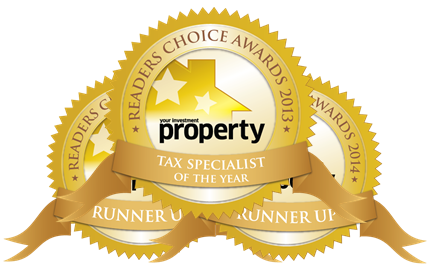 The rise of peer-to-peer access driven business has seen a surge in the number of sharing economy platforms available globally. Included in this growth area is the number of people participating in sharing economy platforms to rent out a room or a whole house or unit for a short-time basis.
The rise of peer-to-peer access driven business has seen a surge in the number of sharing economy platforms available globally. Included in this growth area is the number of people participating in sharing economy platforms to rent out a room or a whole house or unit for a short-time basis. At this time of year, you may be looking into such sharing services for your family home while you are away on your end of year holiday. How do participating in these sharing economy websites and apps affect you tax wise?
Please note that if you carry on an enterprise in which you rent out commercial residential premises, you will have different GST, income tax and land tax obligations to those discussed in this article and should therefore seek further tax advice for your circumstances.
GST
GST does not apply to residential rent. Therefore, you do not need to account for GST from income earned from renting out all or part of your family home. You are not liable for GST on rent you charge and you cannot claim any GST credits for associated expenses. This is also the case even if you are carrying on a separate GST registered business.
INCOME TAX
Income earned from rent received for all or part of your family home must be treated as assessable income in your tax return for the period which they are received.
This also means that you can claim deductions for associated expenses incurred as part of the rental process. The types of expenses that you can claim for renting out all or part of your family home using a sharing economy platform are similar to those you claim if you had a rental property. Some common expenses include:
- Fees or commission charged by the facilitator or administrator
- Council and water rates
- Utilities costs including electricity and gas
- Property insurance
- Interest for any existing loan for the property
- Cleaning and property maintenance costs
In calculating the expense amount, you will need to apportion these for the part of the year which the property was available for rent, the portion of the property available for rent and whether any part of the property was used for personal use when not being rented out.
CAPITAL GAINS TAX
Generally your family home is exempt from capital gains tax. However, if you use any part of your home to produce income during all or part of the period you owned it, you could be liable for capital gains tax. You will lose a proportion of your main residence exemption based on the floor area rented out and the length of time it was rented.
On the other hand, you could be eligible for the full exemption under the temporary absence rule should you rent out your entire family home for less than six years.
LAND TAX
This tax is a state based tax and differs between each state and territory.
QLD – If the ‘allowable letting’ is not more than 50% of the total floor area of all residential area on the land, the full main residence exemption may still apply.
VIC – A ruling exists on whether something is a ‘substantial business activity’ at a principle place of residence. If it is deemed ‘substantial’ then only a partial exemption applies.
NSW – To be eligible for the main residence exemption, you can let out part of your property, but the area occupied by the tenants and boarders must be limited to no more than one of the following:
- One room
- One suite of rooms
- One flat
- One suite of rooms and one room
- One flat and one room
- Two rooms, each of which is separately occupied
Again, land tax exemptions could be applicable should you rent out your entire family home. Land tax charges could also vary depending on the period it is available for rent and whether these dates coincide with the land tax calculation date which differs in each state.
Experts are predicting that the sharing economy will continue to grow over the coming years so no doubt the Tax Office will be keeping a close eye on those participating in these platforms also. Good record-keeping is a must and you should always seek out reliable advice before commencing any new investment or business venture.
...................................................................................................................................................

David Shaw is the CEO of WSC Group: Certified Practising Accountants and Business Advisors, and
was voted Property Tax Specialist of the Year in the Your Investment Property 2013 Readers Choice Awards (as well as runner up in 2012, 2014 & 2015).
*The advice published on social media mediums by WSC Group is of a general nature and does not constitute specific financial advice. For a detailed financial strategy you should consult with a qualified financial advisor before making any investment decision.
Disclaimer: while due care is taken, the viewpoints expressed by contributors/sponsors do not necessarily reflect the opinions of Your Investment Property.

